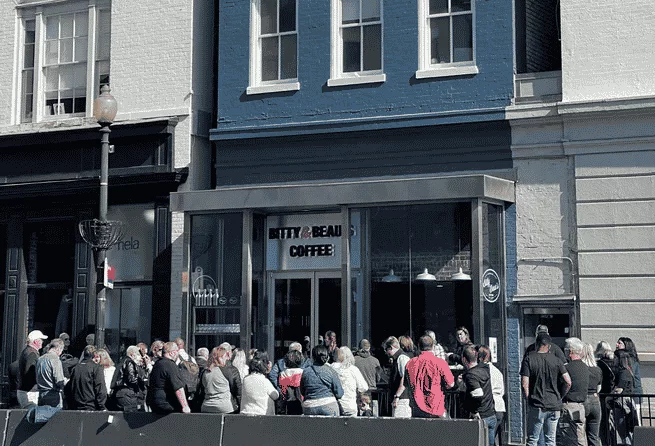By Jonathan Lehrfeld and Ariel Gans, USA Today
Brendan O’Donnell, 43, grinned ear to ear as he took an eager customer’s chai latte order.
“I have a learning disability, and at a very young age, I was told that I wouldn’t be able to walk and talk. Now, look what I can do,” said O’Donnell, who recently began work as a barista at Bitty and Beau’s Coffee, a coffee shop that primarily employs people with intellectual and developmental disabilities.
O’Donnell, a former AmeriCorps employee and courier for Massachusetts’ U.S. senators, said that unlike many people with disabilities, he has not struggled to find employment, but he has been treated differently during his job search.
“It’s happened a lot of times in my life that people don’t respect people with learning disabilities,” O’Donnell said. “They think that we’re not the same.”
Just 19% of people with a disability are employed
“Disability” describes a range of physical, developmental and mental conditions. Many disabilities are invisible but still require special accommodations.
According to the Americans with Disabilities Act, employers may not discriminate against people with disabilities and must provide “reasonable accommodations” to level the playing field to get a job and perform it successfully.
Most people with disabilities do not have O’Donnell’s success landing jobs. In 2021, 19.1% of people with a disability were employed, compared with 63.7% of people without a disability, according to the Bureau of Labor Statistics.
In 2016, Amy Wright sought to help change that when she founded Bitty & Beau’s, named after her two youngest children, 12 and 17, both of whom have Down syndrome. She intends it to be a place where disabled people can do work they find empowering.
Wright describes Bitty & Beau’s Coffee, which has grown into a chain, as a human rights movement “disguised as a coffee shop.”
Her first shop was in Wilmington, North Carolina. She subsequently offered franchises, and the chain’s 12th location opened in Washington, D.C., on April 30. Wright said she has plans to open 14 more locations around the country.
“What we’re really trying to do here is give people a place to see people with disabilities doing meaningful work, earning a paycheck, making a difference, saving for their futures, and when guests come in our shop and see that, they can’t unsee it,” Wright said.
Shift thinking ‘from charity to prosperity’
Every Bitty and Beau’s Coffee employee receives at least minimum wage, with room for advancement through promotions and raises. Many in the organization’s leadership also have disabilities, according to Wright. Bitty and Beau’s Coffee works with its employees to determine their hours, and give their full-time employees benefits.
Click here to read the full article on USA Today.



